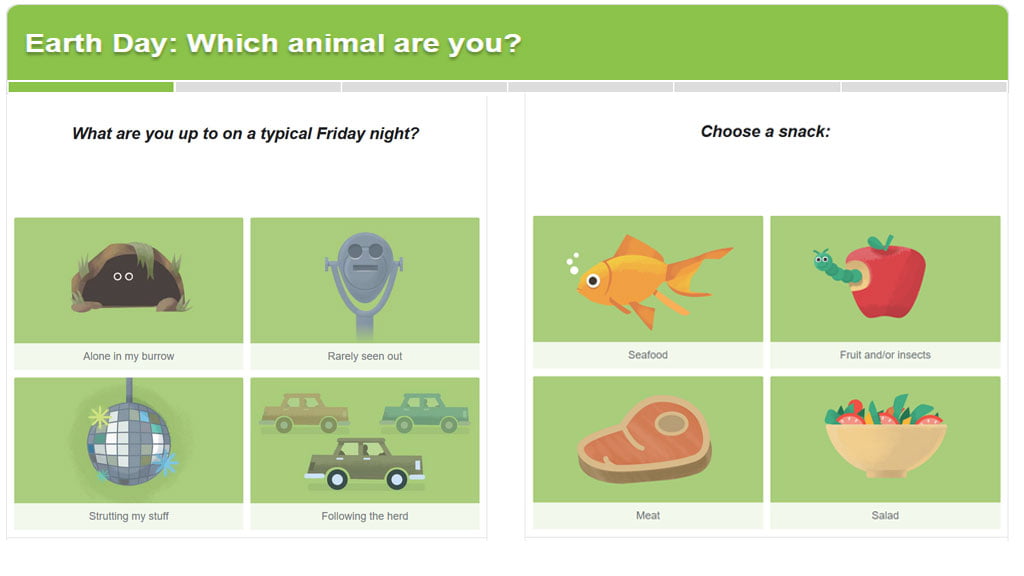Looking for engaging nutrition trivia questions and answers? This article features 100+ fun and educational food facts to test your knowledge and learn something new about healthy eating!
Introduction to Nutrition Trivia
Nutrition trivia is a fun and interactive way to learn about healthy eating, vitamins, minerals, and the science behind food. Whether you’re a health enthusiast, a teacher, or just someone who loves random facts, nutrition trivia can be both entertaining and informative.
In this article, we’ll explore a variety of nutrition-related questions and answers, categorized for easy reading. From macronutrients to surprising food facts, this guide will help you expand your knowledge while keeping things engaging.
Why Nutrition Trivia Matters
Understanding nutrition is crucial for maintaining a healthy lifestyle. Trivia questions make learning about food enjoyable, helping people retain important dietary information. Schools, wellness programs, and even family game nights can benefit from nutrition trivia.
Additionally, nutrition trivia can:
- Improve awareness of healthy eating habits.
- Encourage people to make better food choices.
- Serve as an educational tool in classrooms and workshops.
Nutrition Trivia Questions and Answers
Here’s a categorized list of 101 Nutrition Trivia Questions and Answers, following your preferred format:
1. Vitamins and Minerals
Q: What vitamin is primarily obtained from sunlight exposure?
A: Vitamin D
Q: Which vitamin is essential for blood clotting?
A: Vitamin K
Q: What mineral is crucial for oxygen transport in the blood?
A: Iron
Q: Which vitamin helps improve vision, especially in low light?
A: Vitamin A
Q: What mineral helps in maintaining healthy bones and teeth?
A: Calcium
Q: Which vitamin is also known as ascorbic acid?
A: Vitamin C
Q: What mineral is important for thyroid function?
A: Iodine
Q: Which vitamin complex helps convert food into energy?
A: B Vitamins
Q: What mineral aids muscle contraction and nerve transmission?
A: Magnesium
Q: Which vitamin deficiency causes scurvy?
A: Vitamin C
2. Protein and Amino Acids
Q: What are the building blocks of proteins?
A: Amino acids
Q: Which food is a complete protein source?
A: Eggs
Q: How many essential amino acids are there?
A: Nine
Q: What type of protein comes from plants like beans and lentils?
A: Incomplete protein
Q: Which amino acid is important for muscle growth and repair?
A: Leucine
Q: What organ uses protein to build and repair tissues?
A: Muscle
Q: Can the body store protein for later use?
A: No
Q: Which protein supplement is quickly absorbed after workouts?
A: Whey protein
Q: What condition results from severe protein deficiency?
A: Kwashiorkor
Q: Which food is high in both protein and fiber?
A: Chickpeas
3. Carbohydrates and Fiber
Q: What is the body’s main source of energy?
A: Carbohydrates
Q: What type of carbohydrate is found in fruits and honey?
A: Simple sugars
Q: What type of carbohydrate helps regulate blood sugar levels?
A: Complex carbohydrates
Q: What nutrient helps with digestion and prevents constipation?
A: Fiber
Q: Which type of fiber dissolves in water?
A: Soluble fiber
Q: What food is a good source of dietary fiber?
A: Oats
Q: Which organ uses glucose as its primary fuel?
A: Brain
Q: What sugar is commonly used in processed foods?
A: High fructose corn syrup
Q: Which carbohydrate is stored in muscles and liver?
A: Glycogen
Q: What is the term for carbohydrate sensitivity leading to blood sugar spikes?
A: Insulin resistance
4. Fats and Fatty Acids
Q: What are the healthy fats found in nuts and avocados called?
A: Monounsaturated fats
Q: Which type of fat is considered bad for heart health?
A: Trans fat
Q: What are the essential fatty acids the body cannot produce?
A: Omega-3 and Omega-6
Q: What type of fat is solid at room temperature?
A: Saturated fat
Q: What fat is mainly found in fatty fish like salmon?
A: Omega-3 fatty acids
Q: Which vitamin needs fat for absorption?
A: Vitamin E
Q: What type of fat increases HDL (good) cholesterol?
A: Unsaturated fats
Q: What is the main function of fats in the body?
A: Energy storage
Q: Which fat source is primarily found in tropical oils?
A: Saturated fat
Q: What type of fat should be minimized in a healthy diet?
A: Trans fats
5. Hydration and Water
Q: What percentage of the human body is water?
A: About 60%
Q: How many cups of water are generally recommended per day?
A: 8 cups
Q: What organ regulates fluid balance in the body?
A: Kidneys
Q: What mineral helps maintain fluid balance?
A: Sodium
Q: What symptom is a common sign of dehydration?
A: Headache
Q: Can you get water from fruits and vegetables?
A: Yes
Q: What beverage acts as a diuretic and increases urination?
A: Caffeine
Q: What is the role of water in digestion?
A: Helps break down food and absorb nutrients
Q: What happens to the body when water intake is too low?
A: Dehydration
Q: What fluid transports nutrients and oxygen in the body?
A: Blood
6. Food Groups and Balanced Diet
Q: What are the five main food groups?
A: Fruits, vegetables, grains, protein, and dairy
Q: What food group provides calcium and vitamin D?
A: Dairy
Q: What food group is rich in antioxidants and fiber?
A: Vegetables
Q: What food group includes rice, pasta, and bread?
A: Grains
Q: What nutrient is mainly found in meats and legumes?
A: Protein
Q: What tool helps visualize a balanced diet?
A: MyPlate
Q: What should make up half of your plate at meals?
A: Fruits and vegetables
Q: What type of grain is healthier: whole or refined?
A: Whole grain
Q: Which group is important for building strong bones?
A: Dairy
Q: What food group should be limited due to added sugars?
A: Sweets
7. Superfoods and Antioxidants
Q: What are foods that provide high nutritional value called?
A: Superfoods
Q: Which berry is rich in antioxidants and vitamin C?
A: Blueberries
Q: What spice is known for its anti-inflammatory benefits?
A: Turmeric
Q: Which leafy green is considered a superfood?
A: Kale
Q: What nut is high in omega-3 fatty acids?
A: Walnuts
Q: Which food is a good source of lycopene?
A: Tomatoes
Q: What antioxidant is found in green tea?
A: Catechins
Q: What is the benefit of antioxidants?
A: Protect cells from damage
Q: Which superfood is high in iron and fiber?
A: Spinach
Q: What fruit is rich in potassium and helps prevent cramps?
A: Banana
8. Diets and Nutrition Trends
Q: What diet emphasizes plant-based, whole foods?
A: Vegan diet
Q: What diet eliminates gluten?
A: Gluten-free diet
Q: What high-fat, low-carb diet promotes ketosis?
A: Ketogenic diet
Q: What diet focuses on Mediterranean-style eating?
A: Mediterranean diet
Q: What diet excludes animal products entirely?
A: Vegan diet
Q: What diet alternates between eating and fasting?
A: Intermittent fasting
Q: What diet encourages raw food consumption?
A: Raw food diet
Q: What is a common goal of low-carb diets?
A: Weight loss
Q: What nutrient is often restricted in ketogenic diets?
A: Carbohydrates
Q: What is the primary focus of a paleo diet?
A: Eating like early humans
9. Nutrition Myths and Facts
Q: Does skipping meals help you lose weight?
A: No
Q: Is all fat bad for you?
A: No
Q: Can you get enough protein on a vegetarian diet?
A: Yes
Q: Are carbs always unhealthy?
A: No
Q: Is detoxing with juice cleanses necessary?
A: No
Q: Does drinking water help with weight loss?
A: Yes
Q: Can eating late at night cause weight gain?
A: Not necessarily
Q: Is sugar from fruit unhealthy?
A: No
Q: Do eggs raise cholesterol levels dangerously?
A: Not for most people
Q: Do multivitamins replace a healthy diet?
A: No
10. Child and Teen Nutrition
Q: What nutrient is crucial for growing bones in children?
A: Calcium
Q: How many meals a day should children eat?
A: Three meals and healthy snacks
Q: What vitamin helps strengthen the immune system in kids?
A: Vitamin C
Q: Should children drink energy drinks?
A: No
Q: What is a healthy alternative to sugary snacks?
A: Fresh fruits
Q: What nutrient is important for brain development?
A: Omega-3 fatty acids
Q: What food can help children concentrate at school?
A: Whole grains
Q: What dairy product is a good source of protein and calcium?
A: Yogurt
Q: Why is breakfast important for kids?
A: Boosts energy and focus
Q: How can picky eaters get enough vegetables?
A: Hide them in sauces and smoothies
FAQs About Nutrition Trivia Questions and Answers
Before we conclude, here are some common questions people ask about nutrition trivia:
1. What is the best source of omega-3 fatty acids?
A: Fatty fish like salmon, flaxseeds, and walnuts.
2. How much water should an average adult drink daily?
A: About 2-3 liters (8-12 cups), depending on activity level.
3. Which nutrient is most important for brain health?
A: Omega-3 fatty acids, found in fish and nuts.
4. Can you get enough protein from a plant-based diet?
A: Yes, through beans, lentils, tofu, and quinoa.
5. What is the role of antioxidants in the body?
A: They fight free radicals, reducing cell damage and aging.
Conclusion
Nutrition trivia is more than just fun facts—it’s a gateway to healthier living. By engaging with these questions, you can improve your dietary knowledge and make better food choices.
Whether you’re hosting a quiz night, teaching a class, or simply curious about food science, nutrition trivia offers something for everyone. Keep exploring, stay informed, and enjoy the journey to better health!



